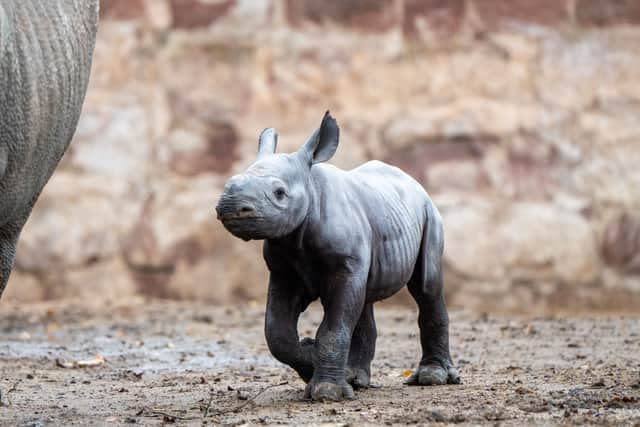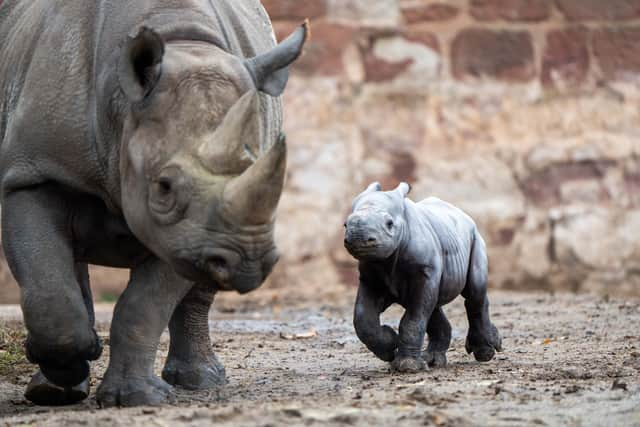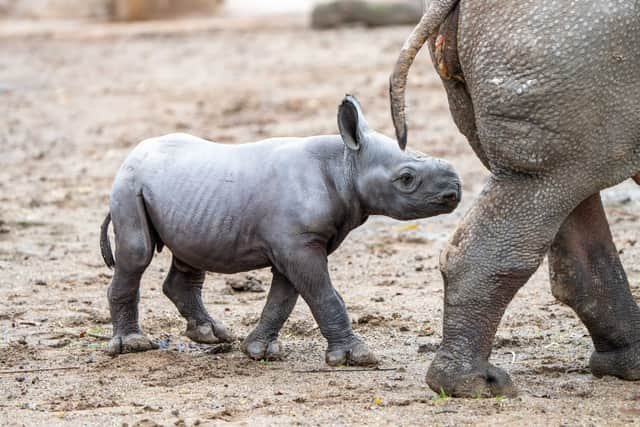Watch the moment 'Magnificent' rare baby rhino born at Chester Zoo
and live on Freeview channel 276
One of the world’s rarest mammals has been born at Chester Zoo. The critically endangered eastern black rhino calf was born on November 12 to mum, Zuri, following a 15-month pregnancy.
Rhino experts say it’s 'quite unusual' for a calf to be born in daylight and that the birth of the healthy baby will help global efforts to prevent the species from disappearing altogether.
Advertisement
Hide AdAdvertisement
Hide Ad

The eastern black rhino is listed as critically endangered by the world’s authority on the state of nature, The International Union for the Conservation of Nature (IUCN), meaning it faces a very high chance of becoming extinct in the wild. Fewer than 600 are now found across Kenya, Tanzania and Rwanda.
The illegal wildlife trade – the world’s fourth biggest international crime – is the main driver in thousands of species disappearing from the wild, including the eastern black rhino.


The demand for rhino horn, stemming from the traditional Asian medicine market, has seen 95% Africa’s rhinos wiped out by poaching. However, new figures released this year show that, for the first time in more than a decade, rhino numbers have increased slightly across Africa due to successful conservation efforts.
Home to the UK’s only zoo-based animal endocrine lab, experts at Chester Zoo have been tracking rhino hormones by closely analysing their dung. They say this research has, 'helped us to massively improve the chances of a successful mating and further increase numbers of this critically endangered species'.
Advertisement
Hide AdAdvertisement
Hide Ad

Mike Jordan, Director of Animals and Plants at the zoo, added: “Our efforts to protect this magnificent species extend far beyond the zoo’s boundaries and, while it’s incredibly positive news that conservation efforts across Africa have led to a small recovery in rhino numbers, giving them some much needed breathing space, we know there’s still lots of work to be done."
Comment Guidelines
National World encourages reader discussion on our stories. User feedback, insights and back-and-forth exchanges add a rich layer of context to reporting. Please review our Community Guidelines before commenting.
